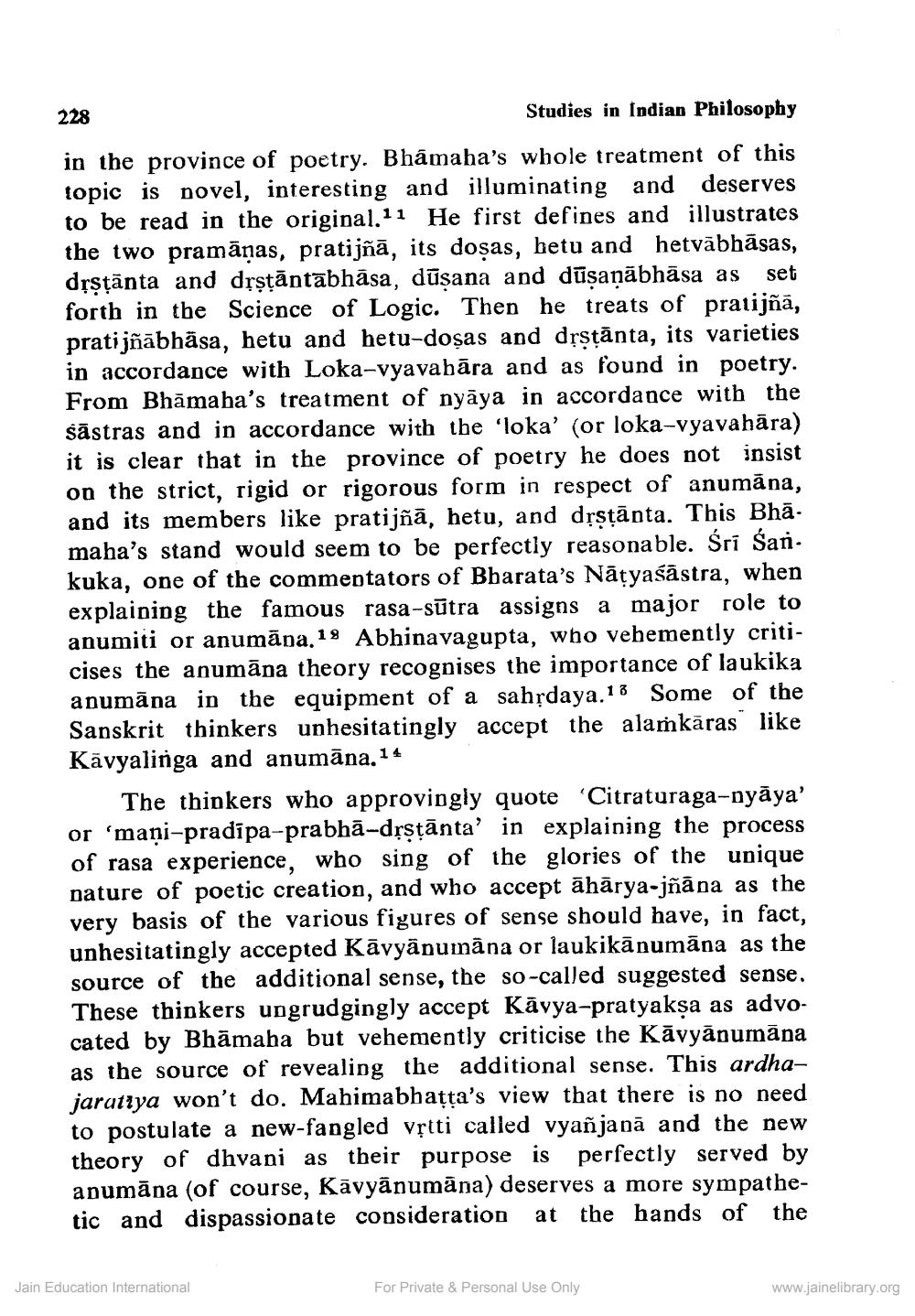________________
228
Studies in Indian Philosophy
in the province of poetry. Bhãmaha's whole treatment of this topic is novel, interesting and illuminating and deserves to be read in the original.11 He first defines and illustrates the two pramānas, pratijñā, its dosas, betu and hetvābhāsas, dịşțānta and drstāntābhāsa, dūsana and dūsaņābhāsa as set forth in the Science of Logic. Then he treats of pratijñā, pratijñābhāsa, hetu and hetu-dosas and dpstānta, its varieties in accordance with Loka-vyavabāra and as found in poetry. From Bhāmaba's treatment of nyāya in accordance with the sāstras and in accordance with the 'loka' (or loka-vyavahāra) it is clear that in the province of poetry he does not insist on the strict, rigid or rigorous form in respect of anumāna, and its members like pratijñā, hetu, and dřstānta. This Bhā. maha's stand would seem to be perfectly reasonable. Śri San. kuka, one of the commentators of Bharata's Nāțyaśāstra, when explaining the famous rasa-sūtra assigns a major role to anumiti or anumāna. 19 Abhinavagupta, who vehemently criticises the anumāna theory recognises the importance of laukika anumāna in the equipment of a sahỉdaya.18 Some of the Sanskrit thinkers unhesitatingly accept the alamkāras like Kāvyalinga and anumāna. 14
The thinkers who approvingly quote "Citraturaga-nyāya' or 'maņi-pradīpa-prabhā-dịşțānta' in explaining the process of rasa experience, who sing of the glories of the unique nature of poetic creation, and who accept āhārya-jñāna as the very basis of the various figures of sense should have, in fact, unhesitatingly accepted Kāvyāpumāna or laukikānumāna as the source of the additional sense, the so-called suggested sense. These thinkers ungrudgingly accept Kāvya-pratyakṣa as advocated by Bhāmaba but vehemently criticise the Kāvyāpumāna as the source of revealing the additional sense. This ardhajaratiya won't do. Mahimabhatta's view that there is no need to postulate a new-fangled vịtti called vyañjanā and the new theory of dhvani as their purpose is perfectly served by apumāna (of course, Kāvyānumāna) deserves a more sympathetic and dispassionate consideration at the hands of the
Jain Education International
For Private & Personal Use Only
www.jainelibrary.org




